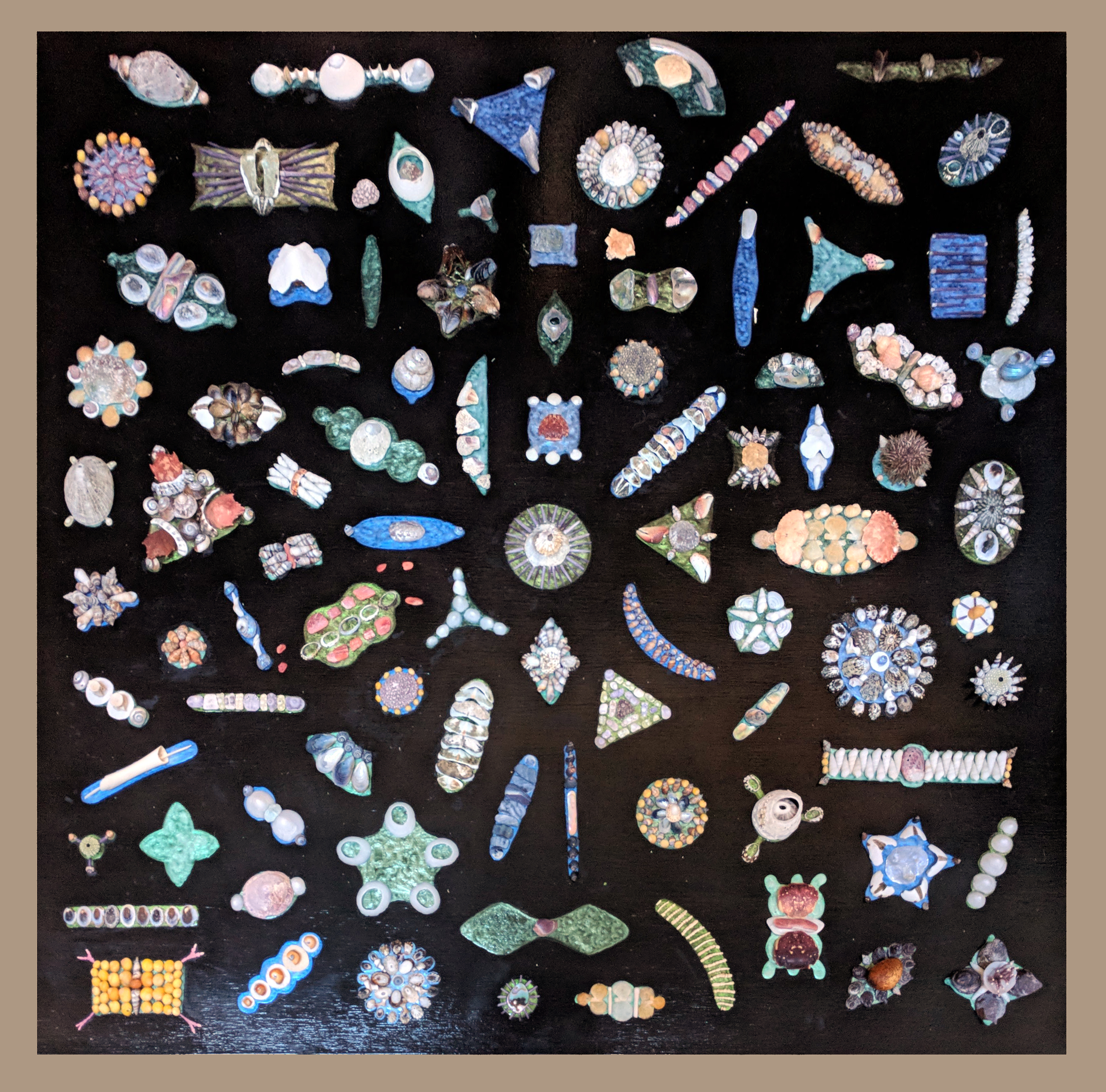I recently finished reading The Invention of Nature by Andrea Wulf. It’s one of the best books I’ve read in the past few years, along with Elizabeth Kolbert’s The Sixth Extinction. Both of these books are about the big picture, about deep time and the interrelatedness of all things, living and non-living. The Invention of Nature is primarily about the life of Alexander von Humboldt and his impact on contemporary science and environmentalism, about his understanding of our impact on climate, and many other things, including his influence on people: Haeckel, Thoreau, Muir, and others. I hadn’t expected to find Haeckel in this book – or Thoreau or Muir for that matter – but it was a delightfully serendipitous encounter, as I’d been drawing diatoms based on Haeckel’s drawings. Haeckel’s depictions of these tiny creatures are so beautiful, so filled with flourish and fantastically obsessive intricacy. My own drawings are so slow to construct, built up from hundreds of tiny elements. Here is a photo of the first one in progress, far from finished:

diatom drawing in progress, 24″ x 24″

